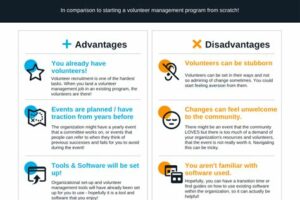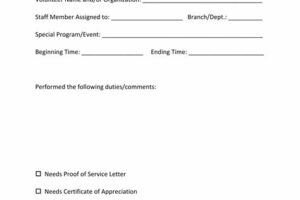Table of Contents
Volunteer literacy programs are initiatives that aim to improve literacy skills by engaging individuals in teaching and mentoring activities. These programs provide opportunities for volunteers to make a positive impact on the lives of others, helping them develop reading, writing, and communication skills. By participating in these programs, volunteers contribute to building stronger communities and empowering individuals to reach their full potential.
Volunteer literacy programs have emerged as a vital resource in our society, addressing the urgent need to improve literacy rates among individuals of all ages. These programs offer a unique opportunity for individuals to make a meaningful impact on their community, while also fostering personal growth and development. With an increasing number of people recognizing the importance of literacy skills in today’s world, the demand for volunteer literacy programs has skyrocketed. As a result, these programs have become a beacon of hope for those seeking to bridge the educational gap and empower individuals to reach their full potential.
The Importance of Volunteer Literacy Programs
Volunteer literacy programs play a crucial role in addressing the global issue of illiteracy. These programs are designed to provide educational opportunities and support to individuals who struggle with reading, writing, and basic literacy skills. By mobilizing volunteers and leveraging their expertise, these programs aim to improve literacy rates and empower individuals to reach their full potential. In this article, we will explore the significance of volunteer literacy programs and the positive impact they have on communities.
Addressing the Global Illiteracy Crisis
Illiteracy continues to be a pressing issue worldwide, affecting millions of individuals across different age groups. Volunteer literacy programs serve as a vital solution to combat this crisis by offering free or low-cost educational resources to those in need. These programs focus on providing personalized instruction and guidance, enabling learners to develop essential reading and writing skills.
Empowering Individuals through Education
Volunteer literacy programs empower individuals by giving them the tools they need to succeed in their personal and professional lives. By improving literacy skills, participants gain greater access to employment opportunities, higher education, and overall self-confidence. Through the support and encouragement of volunteers, learners can break the cycle of illiteracy and unlock their true potential.
Creating Stronger Communities
Strong literacy skills are the foundation of a thriving community. Volunteer literacy programs not only benefit individuals but also contribute to the overall well-being of communities. By investing in literacy education, these programs help create a society with increased civic engagement, improved health outcomes, and reduced poverty rates. Literate communities are better equipped to face challenges and drive positive change.
Building Meaningful Relationships
Volunteer literacy programs foster meaningful connections between learners and volunteers. These relationships go beyond the classroom, as volunteers become mentors, role models, and sources of inspiration for learners. Trust and understanding are built, creating a safe and supportive environment for individuals to grow and learn. The bond formed between volunteers and participants is often transformative and can last a lifetime.
Meeting Diverse Learning Needs
Every learner has unique needs and learning styles. Volunteer literacy programs recognize and address this diversity by offering tailored instruction and materials. Volunteers work closely with participants to understand their specific challenges and adapt teaching strategies accordingly. This personalized approach ensures that learners receive the support they require to overcome barriers and make significant progress.
Enhancing Volunteer Engagement
Volunteer literacy programs provide an opportunity for individuals to contribute meaningfully to their communities. By volunteering their time and skills, individuals can make a lasting impact on the lives of others. Engaging in these programs also allows volunteers to develop new skills, gain valuable experience, and broaden their perspectives. It is a mutually beneficial experience where both learners and volunteers grow together.
Inspiring Lifelong Learning
Through volunteer literacy programs, learners are not only equipped with immediate literacy skills but are also inspired to continue pursuing knowledge throughout their lives. These programs instill a love for learning, encouraging participants to explore new subjects, read widely, and engage with their communities. Lifelong learning becomes a lifelong passion, opening doors to continuous personal growth and development.
Collaborating with Educational Institutions
Volunteer literacy programs often collaborate with educational institutions to maximize their impact. By partnering with schools, colleges, and universities, these programs can access additional resources and expertise. This collaboration strengthens the educational ecosystem, allowing for a more comprehensive and holistic approach to literacy education.
Becoming a Volunteer
If you are passionate about improving literacy rates and making a difference in your community, consider becoming a volunteer in a literacy program. Reach out to local organizations, libraries, or schools to inquire about opportunities. Your dedication and support can transform lives and contribute to building a more literate and inclusive society.
Volunteer literacy programs are an essential component in the fight against illiteracy. They offer hope, empowerment, and opportunities for individuals to overcome challenges and achieve their goals. By supporting these programs and becoming a volunteer, we can create a world where literacy is accessible to all and no one is left behind.
The Significance of Volunteer Literacy Programs
Volunteer literacy programs play a pivotal role in empowering communities by addressing the persisting issue of illiteracy. Through their commitment, these programs provide individuals with essential literacy skills, helping them unlock an array of opportunities for personal and professional growth.
Creating a Safe and Supportive Learning Environment
Volunteer literacy programs prioritize the creation of safe and supportive learning environments for individuals of all ages. By fostering an atmosphere of trust and respect, these programs ensure that learners feel comfortable and motivated to improve their literacy skills, ultimately boosting their self-esteem and self-confidence.
Tailoring Instruction to Individual Needs
Adopting a personalized approach, volunteer literacy programs tailor instruction to meet the unique needs of each learner. Volunteers take into account learners’ existing knowledge, abilities, and preferred learning styles, thereby maximizing their potential for progress while addressing any specific challenges they may face.
Expanding Literacy Beyond Basic Reading and Writing
Volunteer literacy programs extend their impact beyond basic reading and writing skills. By offering diverse educational opportunities, such as digital literacy, financial literacy, and language instruction, these programs equip individuals with a holistic set of skills for navigating today’s increasingly interconnected world.
Empowering Communities through Inter-Generational Learning
Volunteer literacy programs embrace the rich knowledge and experiences present within communities by promoting inter-generational learning. Through mentorship and exchanges between younger and older learners, these programs foster mutual understanding and bridge the gap between different generations, helping to build stronger and more cohesive communities.
Collaborating with Local Institutions and Organizations
To ensure the effectiveness and sustainability of their efforts, volunteer literacy programs partner with local institutions and organizations, ranging from schools and libraries to community centers and businesses. This collaboration enables the sharing of resources, expertise, and best practices, amplifying the impact of these programs on the community as a whole.
Providing Professional Development Opportunities for Volunteers
Recognizing the value of ongoing learning and professional development, volunteer literacy programs offer training programs and resources to their volunteers. These opportunities help volunteers enhance their instructional techniques, stay updated with the latest educational practices, and deepen their understanding of literacy-related issues, ultimately making them more effective in their roles.
Advocating for Literacy Awareness and Policy Changes
In addition to their direct impact on learners, volunteer literacy programs also advocate for increased awareness of literacy issues and necessary policy changes. By highlighting the importance of literacy in various forums and engaging with policymakers, these programs aim to secure necessary resources, support, and legislative changes to address literacy challenges at a systemic level.
In today’s rapidly changing world, literacy has become an essential skill for individuals to thrive and succeed. Unfortunately, there are still a significant number of people who struggle with reading and writing, hindering their ability to fully participate in society. Volunteer literacy programs play a crucial role in addressing this issue, providing support and opportunities for those in need. From a professional perspective, these programs offer numerous benefits and have a significant impact on both individuals and communities. Here are a few key points highlighting the significance of volunteer literacy programs:
- Targeted Support: Volunteer literacy programs are designed to cater to the specific needs of individuals who struggle with reading and writing. These programs often employ trained volunteers who possess the necessary skills and expertise to help learners overcome their difficulties. By offering one-on-one or small group sessions, volunteers can provide personalized attention and assistance, ensuring that learners receive the support they require.
- Promoting Literacy: Volunteer literacy programs actively promote the importance of literacy within communities. They raise awareness about the benefits of being literate and encourage individuals to seek help if needed. By organizing workshops, events, and campaigns, volunteers create an environment that fosters a love for reading and writing. This not only enhances the literacy skills of participants but also inspires others to engage in lifelong learning.
- Empowering Individuals: Through volunteer literacy programs, individuals gain the confidence and skills necessary to navigate their daily lives more effectively. By improving their literacy skills, participants can read job applications, understand medical instructions, manage finances, and communicate more efficiently. This empowerment leads to increased self-esteem, independence, and overall well-being, enabling individuals to actively contribute to their families and communities.
- Community Development: Volunteer literacy programs contribute to the development of stronger and more inclusive communities. As participants acquire literacy skills, they become active participants in various aspects of community life. They are better equipped to engage in civic activities, access educational opportunities, and seek meaningful employment. This, in turn, leads to increased social cohesion, reduced inequality, and a more prosperous society as a whole.
- Volunteer Engagement: These programs not only benefit learners but also provide a rewarding experience for volunteers themselves. By volunteering their time and skills, individuals have the opportunity to make a positive difference in the lives of others. They develop empathy, patience, and a deeper understanding of social issues. Furthermore, volunteering in literacy programs allows professionals to utilize their expertise in a meaningful way, contributing to their own personal and professional growth.
In conclusion, volunteer literacy programs play a vital role in addressing the literacy challenges faced by individuals in our society. Through targeted support, promotion of literacy, empowerment of individuals, community development, and volunteer engagement, these programs create lasting positive impacts. As professionals, it is our responsibility to recognize the value of these programs and actively support and participate in initiatives that promote literacy for all.
Thank you for taking the time to visit our blog and learn more about volunteer literacy programs. We hope that the information provided has given you a better understanding of the importance of these programs and how you can get involved in making a difference in your community.
Volunteer literacy programs play a crucial role in helping individuals improve their reading and writing skills, ultimately empowering them to lead more fulfilling lives. By dedicating just a few hours a week, you have the power to positively impact someone’s life and contribute to building a stronger, more literate society. Whether you choose to tutor adults, children, or both, your efforts will be greatly appreciated and highly valuable.
To further encourage your participation, we would like to highlight the benefits of volunteering for literacy programs. Firstly, volunteering allows you to develop new skills and gain valuable experience. As a literacy volunteer, you will enhance your communication skills, patience, and adaptability, all of which are highly sought after in today’s job market. Additionally, working closely with individuals from diverse backgrounds will broaden your perspective and foster a greater understanding and appreciation for the richness of our society.
In conclusion, we strongly encourage you to consider joining a volunteer literacy program. The impact you can make on someone’s life is immeasurable, and the personal growth you will experience is invaluable. Whether you have a passion for education, want to give back to your community, or simply have some free time to spare, volunteering for a literacy program is a meaningful way to make a difference. Take that first step today and become a part of something bigger than yourself. Together, we can create a brighter future for all.
Thank you once again for visiting our blog, and we hope to see you soon as a dedicated volunteer in one of our literacy programs!
Video Volunteer Literacy Programs
People also ask about Volunteer Literacy Programs:
What are volunteer literacy programs?
Volunteer literacy programs are initiatives that involve individuals offering their time and expertise to teach and support others in improving their reading, writing, and language skills.
Why are volunteer literacy programs important?
Volunteer literacy programs play a crucial role in addressing the needs of individuals who struggle with literacy. They provide access to education and empower individuals to develop essential skills for personal growth, employment opportunities, and full participation in society.
How can I get involved in a volunteer literacy program?
To get involved in a volunteer literacy program, you can start by researching local organizations or nonprofits that focus on literacy education. Reach out to them to inquire about volunteer opportunities. They may require some training or background checks to ensure the safety and effectiveness of their programs.
What skills or qualifications do I need to volunteer in a literacy program?
The skills and qualifications required to volunteer in a literacy program vary depending on the specific program and its target audience. However, having a strong command of the language being taught (such as English) and patience to work with learners at different levels are generally valuable qualities for volunteers in literacy programs.
Can I volunteer in a literacy program if I’m not a teacher?
Absolutely! Volunteer literacy programs welcome individuals from various backgrounds and professions. While teaching experience is beneficial, it is not always a requirement. Many programs offer training and resources to equip volunteers with the necessary tools and strategies to support learners effectively.
What are the benefits of volunteering in a literacy program?
Volunteering in a literacy program not only allows you to make a positive impact on someone’s life but also offers personal growth and satisfaction. It provides an opportunity to enhance your communication and teaching skills, gain a deeper understanding of educational challenges, and contribute to building a more literate and inclusive society.
Remember, each volunteer literacy program may have its own specific guidelines and requirements, so it’s always best to reach out to the organization directly for detailed information on how to get involved.






